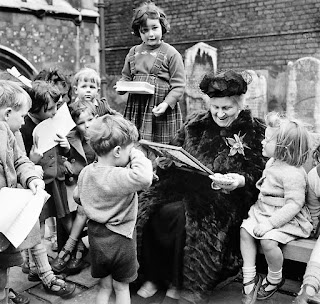Once upon a time, the biggest enemy to education was ignorance. In
addition, false information was rumours in the school playground. The focus in
schools was firmly on helping students to acquire knowledge and widen their
horizons.
These days, teaching has a similar mountain to climb: how to show
students ways of finding what is true in an age of “too much” information.
Trump, for example, has firmly established the principle of “fake news”
in the global consciousness. Added to this sea of confusion is the phenomenal
infiltration social media has achieved in recent years, creating with it a
tsunami of information that has little or no “truth filters” built into it.
For today’s students, there is plenty of information available and ways
to acquire it, and the teacher’s role is geared more towards helping them to
sort through it with common sense and insight.
It could be argued that future generations of school leavers will need
sharpened analytical skills every day of their working lives. Not just to be
able to judge between fact and fiction, but also because all industry and
commerce of the future is being built on rapidly advancing technology and a
massive amount of information (“Big Data”).
The workplace that today’s students will enter is increasingly involved
in sourcing, collating, analysing and utilising this massive amount of
information – whatever career that ultimately choose.
In the face of so much “data” at their fingertips every day on
smartphones and tablets, how do teachers help students make sense of what is
real and develop abilities to comprehend and utilise their own “filtering”
skills? How can teachers create a generation that uses information effectively,
rather than being overwhelmed by it?
Sifting through what is real and fake in news and social media “chatter”
can lead to politically sensitive discussions in classrooms. When asked to verify
and evidence their views and findings, students may use sources that are
debatable in their credibility.
However, teachers are in the best possible position to use these
opportunities to show how that there are different sides to every argument and
how facts can be manipulated and used selectively to back up opposing views.
A dispassionate and non-political “referee” in the classroom can provide
a constructive platform for debate and investigation. Teachers can offer
techniques and methods to enable students to make sure that the information
they use is valid and credible.
Using the myths and legends propagated by social media, in relation to
recent world events, can particularly provide insights into how unfounded
information can distort and mislead.
It could well be that developing these analytical and evaluation skills
to control and use information becomes part of the future curriculum.
Amongst the ways teachers can help students develop ways to seek out
information that is valid and credible is to explain such things as: copyright,
how to check the credentials of anyone quoted how to compare information from
three of more sources, the relevance of the timeline of the information, and
the “age” of the source. In essence, what constitutes a reliable and trusted
source?
One subject which can best be used to support analysis and build
perceptive students is history. Looking at the past and how political and
social history has shaped today’s world gives context to some of the confusing
messages they may have to sort through.
The way in which education itself has played a role in identifying and
protecting basic human rights is an anchor for learning in an age when
“alt-news” muddies the waters. It is impossible to separate the world into
“good guys” and “bad guys” without overturning centuries of progression.
There are certainly abundant examples of “fake news” from the past that
can show that though it is now prolific, it is not new. Check out the
propaganda from both sides of the French Revolution for examples.
One of the ways teachers can enable students to seek out “truth” is to
develop the principle of “common sense”. By the very process of exposing that
there are “shades” of truth and falsehood in current information, you provide
them with permission to use their own natural intuition and evaluation skills.
One of the biggest misconceptions teachers come across in modern classrooms
is that if information is available on the internet, it must be true!
Fortunately, there are plenty of contradictory samples that can illustrate the
need for students to be discerning and apply intelligent reasoning.
Discussions of fake news – and the controversy of current world affairs
– may engender a sense of distrust amongst some students that renders them
immune to taking in facts. Teachers are again in a unique position to offset
this and teach media literacy.
It is right to take in as much information as possible, even what may or
may not be fake. Nevertheless, students need to be ready to sort through it
using their own intuition and support from reliable sources.
If nothing else, recent world events, the dominance social media has in
student’s lives and the advent of Big Data, all combine to provide teachers
with an abundance of “teachable moments”.










